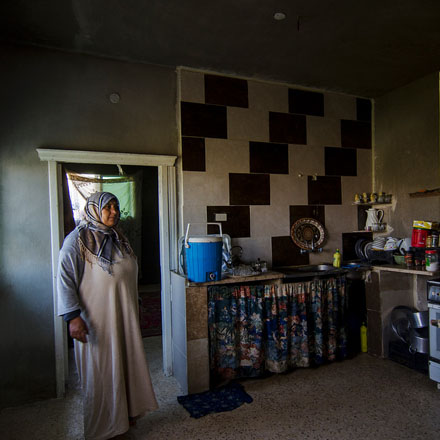
The horrific experience of fleeing for my life is one I am daily thankful I’ve managed to avoid. The UN Refugee Agency (UNHCR) tells us that we are now witnessing the highest levels of displacement on record. The number of people forced from their homes continues to increase; the number of people who must seek refuge in other countries shows no sign of slowing. I am under no illusion about how lucky I am.
For any country, a refugee crisis has the potential to become a politically toxic, wicked problem. Faced with this scale of challenge people can feel defensive, overwhelmed and afraid.
I’ve heard arguments like;
“Why should we help to house refugees? We have our own problems! We don’t have the resources! Why should we give houses to people coming from outside when we can’t even cater for the people who are already here?” and “I pay a lot of money for my house and I don’t see why anyone else should get special treatment”.
The way so many have come to view housing – as an investment; a pension; a status symbol; an income-generator – makes these responses seem logical. But we need to reset our mind-set and our compassion.
When my 5 year old picks up on the refugee crisis, he naturally defaults to a level of humanity that is often not present in discussions among adults. Ask a child what a homeless person needs; the answer is simply “a home”. I find children have a naturally keen sense of human rights – their ego-centrism ironically makes them more sensitive to the plight of others, because they think about what that would be like for them. My 5 year old knows instinctively that a safe, secure home is inexorably connected with human rights.
Leilani Farha, UN Special Rapporteur on the right to housing and one of our World Habitat Award judges, puts it better:
…because adequate housing is crucial to the social conditions necessary for human dignity it is intimately connected to the right to life.
We are asking ourselves the wrong question. We can’t hide from the reality of human suffering, or what ignoring it says about our own humanity. The international acceptance of the Universal Declaration of Human Rights means we have a responsibility for each other as human beings in a volatile world. The question is not “Why should we help to house refugees?” but “How will we help to house refugees?”
How it’s been done
I’m in my 4th year at World Habitat and learning all the time about how adequate housing is provided in many ways across the world. Every community is different, every country is different, and every place has its challenges. But I’m finding there is one universal truth with providing housing, even in the most desperate of circumstances. Where there’s a will, there’s a way.
I’ve spotlighted a couple of examples from the World Habitat Awards that have answered the question “How will we help to house refugees?” They are a reminder of what is possible when people focus on answering not “why?” but “how?”:
U Focularu: The Home Village (Italy, 2006 Finalist): A small village in Southern Italy with a dwindling population welcomed over 1,000 Kurdish asylum seekers with open arms in 1997. The action prompted the regeneration of local properties, the local economy, and improved the cultural and social well-being of the town.
 The town of Badolato embraced refugees who were able to put down roots and help to revitalise the local community.
The town of Badolato embraced refugees who were able to put down roots and help to revitalise the local community.
Rental Mediation Programme (Spain, 2011 Finalist): This initiative helped to build trust and relationships between vulnerable tenants and wary landlords, creating stable homes and communities and improving the supply of homes to people on low incomes – including refugees.
Urban Shelter Project (Jordan, 2016 Finalist): An organisation helping refugees in the current climate, as well as regenerating properties that would otherwise be left empty. The Urban Shelter Project is creating a positive impact on the local community. Crucially it is also helping those seeking refuge while recognising their capacity, respecting their humanity and supporting their rights.
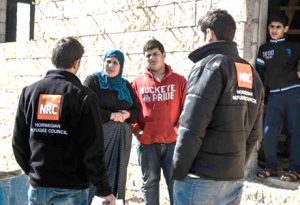 The Urban Shelter Project helps address tensions between local people and refugees, whilst ensuring the households receiving assistance are kept involved and aware of their rights.
The Urban Shelter Project helps address tensions between local people and refugees, whilst ensuring the households receiving assistance are kept involved and aware of their rights.
I’m not suggesting the answers are easy, or pretending to be an expert on the topic of refugees. But examples of what has been possible, in all sorts of circumstances, convince me that people are capable of finding solutions. What is particularly striking to me is the difference it can make when refugees (and other vulnerable groups) are not presented or treated in a one-dimensional, ‘charity-case’ way, but involved and empowered to assert their human rights. What makes me sad is that it’s necessary to remind anyone about human rights in the first place.
We could probably all do with a reality check from a 5 year old…

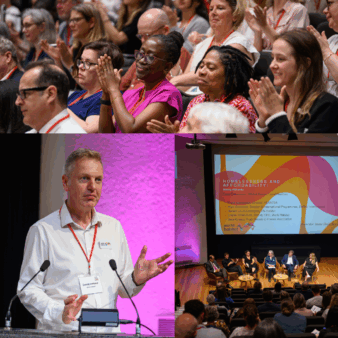
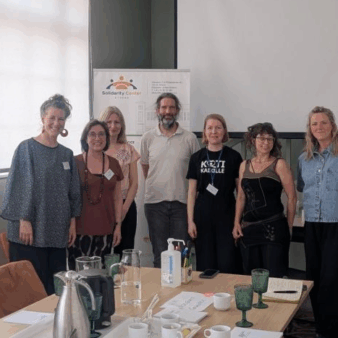
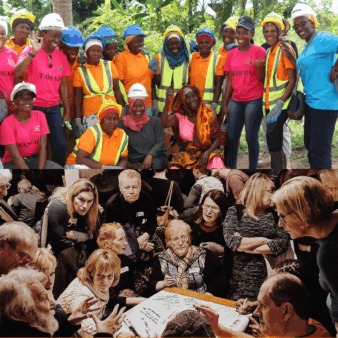
Join the discussion